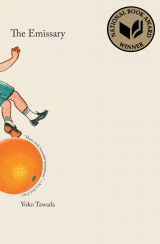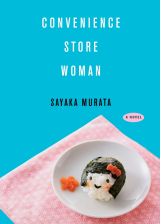2019/11/15 |
Rising Interest in Japanese Literature in English-Speaking Countries |
|---|


Works of Japanese literature are making news in Western countries, with Yoko Tawada’s The Emissary winning the National Book Award for Translated Literature and Sayaka Murata’s Convenience Store Woman being selected by The New Yorker as one of their Best Books of 2018. Behind these headlines lies the hard work of translators who have pulled out a variety of works and delicately replicated the charm of the original Japanese text into English.
According to Ginny Tapley Takemori, translator of Convenience Store Woman, “a translation that is faithful to the original text is one that feels the same as reading the original Japanese text.” In the case of Convenience Store Woman, care was taken to translate passages relating to life in the convenience store in such a way that foreign readers would find it familiar. That being said, there were instances where words such as "Irasshaimase" were left as is, with the note that “it is a word that anyone who comes to Japan will hear,” and the inability of "Hello" or "Welcome" to convey the right nuance.
The environment of Japanese-to-English translation was considerably different 30 years ago, when Haruki Murakami’s works were first being translated. “The first English translations of Murakami’s works were greatly contracted, with the setting’s time period even changed, as well as many metaphors being omitted,” says writer and translator David Karashima. “In order to avoid alienating American readers who might be put off by the books’ foreign style, excessive adaptations were the norm at the time.”
However, thanks to the spread of the internet, local themes and customs can now be instantaneously shared, as well as a cross-cultural exchange of people’s fears and anxieties. Karashima says that in this environment, “there are more translators and editors who are working towards simultaneous publication of an original book and its translation.” Tadahiko Haga, author of Amerika wa nihonbunka wo dou yondeiruka (How is America reading Japanese culture), points to another benefit to faithful translations, in their ability to “help readers to understand another culture, and work towards dismantling stereotypes associated with that nation.”
As more and more works of Japanese are being translated and introduced to Western readers, the lineups of books that are chosen for translation can be seen as a mirror to the world at that time.
Article originally posted in The Nihon Keizai Shinbun, March 23rd 2019
According to Ginny Tapley Takemori, translator of Convenience Store Woman, “a translation that is faithful to the original text is one that feels the same as reading the original Japanese text.” In the case of Convenience Store Woman, care was taken to translate passages relating to life in the convenience store in such a way that foreign readers would find it familiar. That being said, there were instances where words such as "Irasshaimase" were left as is, with the note that “it is a word that anyone who comes to Japan will hear,” and the inability of "Hello" or "Welcome" to convey the right nuance.
The environment of Japanese-to-English translation was considerably different 30 years ago, when Haruki Murakami’s works were first being translated. “The first English translations of Murakami’s works were greatly contracted, with the setting’s time period even changed, as well as many metaphors being omitted,” says writer and translator David Karashima. “In order to avoid alienating American readers who might be put off by the books’ foreign style, excessive adaptations were the norm at the time.”
However, thanks to the spread of the internet, local themes and customs can now be instantaneously shared, as well as a cross-cultural exchange of people’s fears and anxieties. Karashima says that in this environment, “there are more translators and editors who are working towards simultaneous publication of an original book and its translation.” Tadahiko Haga, author of Amerika wa nihonbunka wo dou yondeiruka (How is America reading Japanese culture), points to another benefit to faithful translations, in their ability to “help readers to understand another culture, and work towards dismantling stereotypes associated with that nation.”
As more and more works of Japanese are being translated and introduced to Western readers, the lineups of books that are chosen for translation can be seen as a mirror to the world at that time.
Article originally posted in The Nihon Keizai Shinbun, March 23rd 2019
